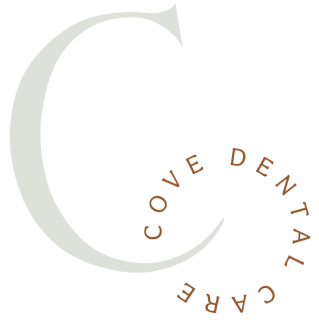Greer:

Tooth Cavities in Greenville, SC
Cavities, also known as dental caries, are areas of tooth decay caused by the breakdown of the tooth enamel and other structures. They are typically caused by the combination of bacteria in the mouth and a sugary or starchy diet. When bacteria feed on sugars and starches in the mouth, they produce acid that can wear away the protective enamel on teeth, leading to cavities.
Cavities can vary in severity and size, and may cause no symptoms initially. However, if left untreated, cavities can progress and cause toothache, sensitivity, and even tooth loss. Treatment for cavities typically involves removing the decayed area of the tooth and filling it with a material such as composite resin or amalgam. Preventive measures such as regular dental checkups, proper oral hygiene, and a balanced diet can help reduce the risk of developing cavities.
What Causes Cavities?
Everyone has bacteria in their mouth. Some bacteria are more harmful than others. Oral healthcare is important to get the bad bacteria away from your smile. Keeping your mouth cleaner makes you less likely to have too many bad bacteria. It makes it harder for you to get a cavity.
Eating a healthy, balanced diet helps you prevent cavities, too. Sugar is what bacteria feed on. You’ve probably heard about avoiding too many sodas or sweets. But carbohydrates and starches break down into sugars too. Pasta, bread, and other carbs break down into simple sugars as they’re being digested, providing more food for these bacteria.
Time is the last factor in tooth decay. The longer bacteria have a food source, the more likely they are to form a cavity. The saliva in your mouth keeps it at a neutral pH. Bacteria feed on sugars and produce acid, changing the pH in your mouth. This acidic level is conducive to tooth decay. If you’re snacking a lot throughout the day or drinking soda, you’re constantly giving bacteria a food source, and they continue to produce acid.
Preventing Cavities:
If you lose a tooth, we recommend replacing it as soon as possible. The longer you go without replacing the tooth, the more serious the side effects get. We offer various tooth replacement options at our Greer, SC, dentist office.
We want to help prevent cavities from happening, even if you’ve had one before. Our office dedicates itself to preventative care so that we don’t have to result to more invasive measures. We’ll talk to you about your diet, recommend oral healthcare products, and discuss the best ways to take care of oral health when you’re at home.
If you think you have a cavity, come into our office as soon as possible. Don’t let decay continue to get worse. If you leave a cavity alone, it continues to eat away at your tooth. This can lead to an abscess, painful infection in the pulp, or even tooth loss.
Treating Cavities:
Typically, we treat cavities with dental fillings. Amalgam fillings with mercury in them used to be the common material for fillings. Now, most fillings are composite resin matching your teeth’ color. It’s more subtle and much less noticeable in your mouth. They also don’t come with the danger and toxicity of mercury in your mouth.
Before treatment, we use a local anesthetic to ensure you’re numb and will be comfortable throughout the procedure. We completely remove any infected material and thoroughly clean your tooth cavity. The dental filling material adheres to the tooth for a long-lasting solution. We ensure that the filling is hardened and set how it should be. You should be able to use this tooth like your natural tooth without pain.
For larger areas of decay, we may need to use an inlay or onlay. These are the step between a dental filling and a dental crown. Inlays fill in the hollow of your tooth, but they don’t impact the cusps. Onlays also take care of the cusps and are sometimes called partial crowns. They treat many things a crown can treat but are less invasive.
More About Cavities
Cavities, also known as dental caries, are a common dental issue that can have far-reaching effects on both oral health and overall well-being. Cavities are essentially areas of decay that form on the tooth’s surface as a result of the interaction between bacteria, sugars, and acids in the mouth. While cavities are primarily associated with dental health, they can also be correlated with various systemic health problems.
Cavities are a direct result of poor oral hygiene and excessive consumption of sugary foods and beverages. Bacteria in the mouth produce acids when they break down sugars, which gradually erode the protective enamel covering the teeth. If left untreated, cavities can progress deeper into the tooth, potentially reaching the pulp and causing severe pain and infection.
The correlation between cavities and overall health lies in the potential for bacterial spread from the mouth to other parts of the body. Research suggests that the bacteria responsible for cavities can enter the bloodstream through inflamed or infected gums, a condition known as periodontitis. This bacteremia, or bacteria in the blood, has been linked to an increased risk of certain health issues, including cardiovascular diseases such as heart disease and strokes.
Furthermore, the discomfort and pain caused by cavities can impact an individual’s quality of life. Difficulty eating and speaking, sleep disturbances, and persistent pain can lead to stress and decreased overall well-being. Additionally, poor oral health has been associated with diabetes, as the inflammation from gum disease may contribute to insulin resistance.
Preventing cavities through proper oral hygiene, regular dental check-ups, and a balanced diet not only maintains healthy teeth but also potentially reduces the risk of related health problems. The connection between cavities and systemic health concerns emphasizes the importance of comprehensive dental care in promoting both oral health and overall wellness.
